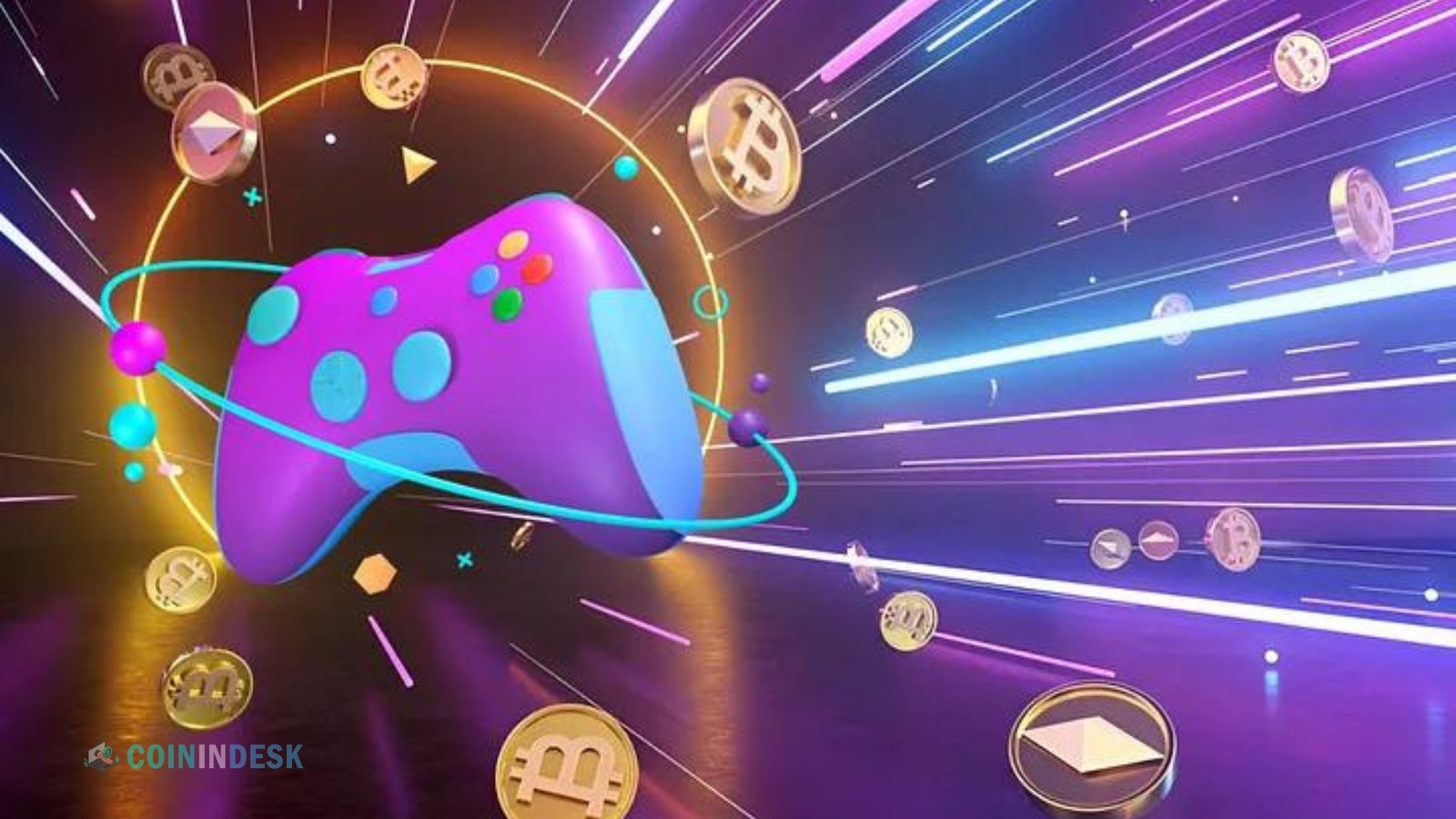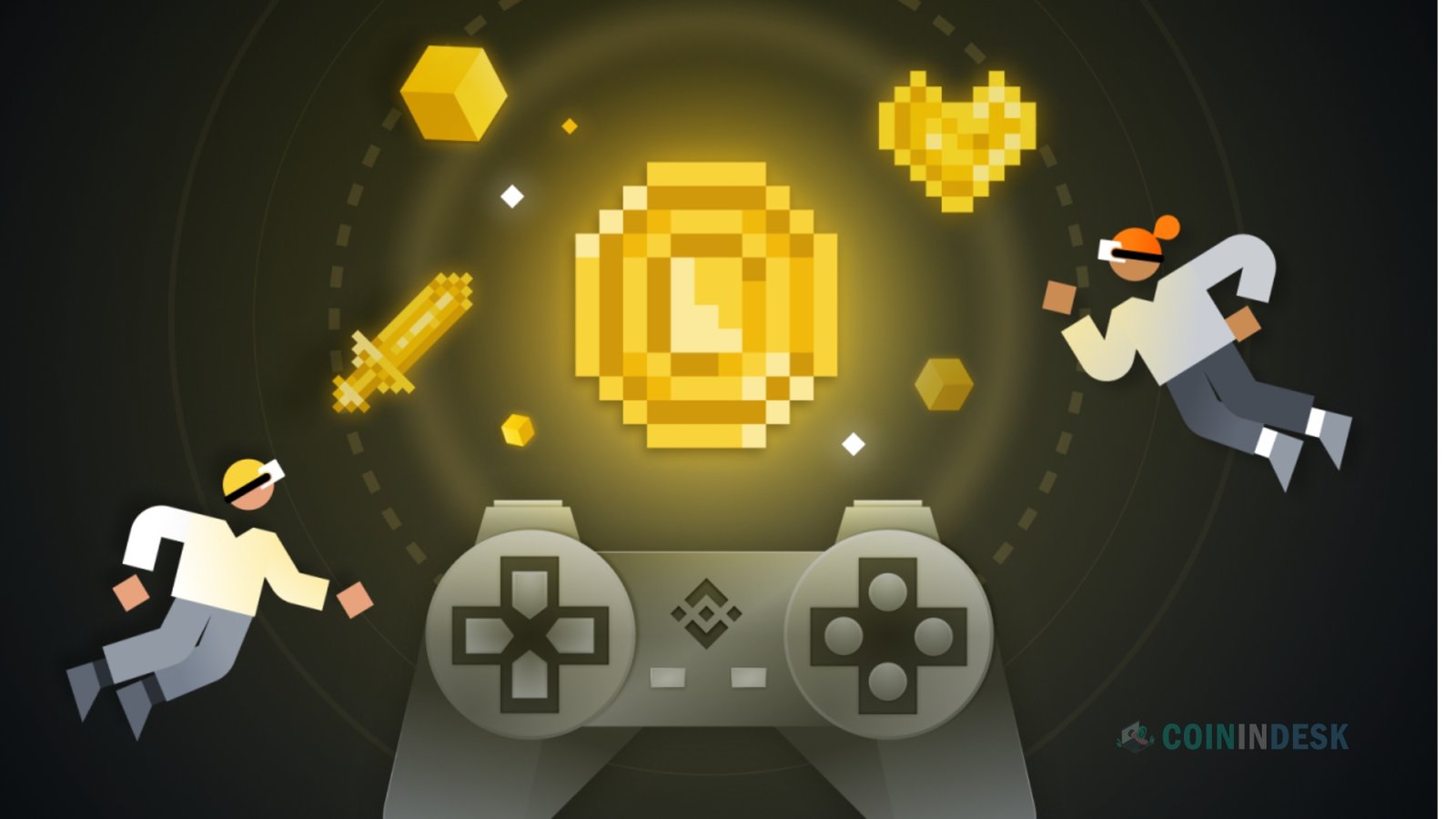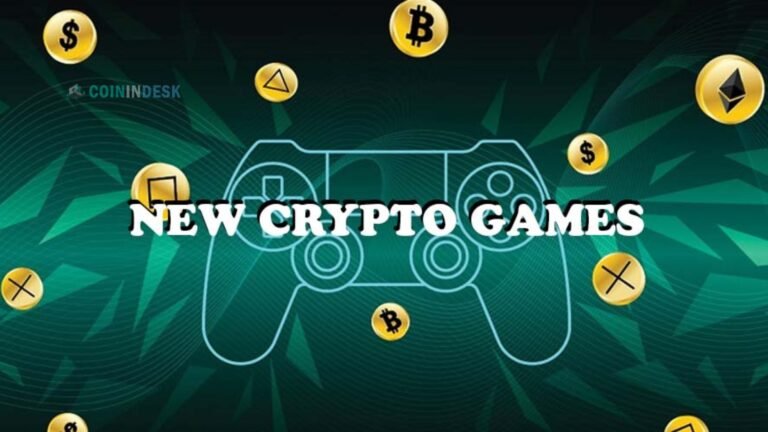NFT Crypto Games: Using blockchain technology and non-fungible tokens (NFTs), NFT crypto games are revolutionizing the gaming industry. A new dynamic has emerged in the virtual world thanks to these games. These games provide players with unique items they may own, sell, and profit from. A fast-expanding subset of the cryptocurrency market, this hybrid of blockchain technology and gaming offers a fresh platform for players, programmers, and investors.
What Are NFT Crypto Games?
Video games that use NFTs and blockchain technology are called NFT crypto games. One’s ownership of particular virtual goods, characters, or spaces within a game can be represented by a one-of-a-kind digital asset called an NFT. Players now have real ownership of NFTs—unlike traditional in-game items—thanks to their storage on a blockchain, which also allows them to buy or sell them on numerous marketplaces. With this change, a play-to-earn model is possible, allowing users to make money by playing the game.
How Do NFT Crypto Games Work?
Smart contracts often manage NFTs’ production, distribution, and transactions in these games. These run on blockchain networks such as Polygon, Binance Smart Chain, or Ethereum. NFTs can represent characters, weapons, skins, virtual land, and more, which players can earn or buy in-game. The assets are then recorded on the blockchain, guaranteeing their originality, rarity, and legitimacy.
Because blockchain technology is decentralized, these assets are free to move and trade among platforms without interference from any one entity. Players can sell their NFTs on external marketplaces, which could lead to real-world earnings.
Popular NFT Crypto Games
Several NFT crypto games have gained immense popularity, attracting a large community of players and investors:
Axie Infinity
One well-liked NFT crypto game is Axie Infinity, in which players amass, breed, and fight fantastical monsters called Axies. Axie tokens are one-of-a-kind NFTs that enable genuine ownership. As part of its groundbreaking gaming economy, the game employs a play-to-earn approach that lets players earn in-game cash (Smooth Love Potion) and exchange Axies for real-world value.
Decentraland
Users of the Ethereum blockchain-powered virtual reality platform Decentraland can purchase, build, and exchange NFT-based virtual land plots. Players can monetize interactive experiences, games, and virtual real estate. Decentraland provides a unique user-driven metaverse with artistic freedom, economic opportunity, and a play-to-earn approach.
The Sandbox
Players in the Sandbox may build, own, and monetize game experiences using NFTs and the native SAND currency in a blockchain-based virtual environment. Users can create and exchange pixelated metaverse objects like characters, items, and land parcels. The Sandbox gives users agency over the virtual economy by letting them truly control it and use a play-to-earn approach.
Gods Unchained
Players in Gods Unchained possess digital cards in the form of NFTs, a blockchain-based trading card game. Integrating blockchain technology with strategic gameplay grants players full control over their cards. These cards have real-world value since players can collect, trade, and sell them on markets. Users can earn in-game currency and earn money by honing their talents in this game.
The Play-to-Earn Model
The play-to-earn paradigm is one of the most groundbreaking developments by NFT crypto games. This principle allows users to earn prizes by engaging with the game, typically represented by NFTs or cryptocurrencies. In contrast to those in more conventional games, the in-game assets in NFT crypto games have actual monetary worth.
Accomplishing objectives, defeating enemies, or breeding and selling characters are all ways for players to gain prizes. To convert these prizes into fiat currency, they can be traded on cryptocurrency exchanges such as Ethereum or stablecoin marketplaces. This concept could open up new avenues for economic growth, particularly in areas with few conventional job prospects.
Benefits of NFT Crypto Games
Thanks to blockchain technology, NFT crypto games give players full ownership of in-game assets, let them earn money from gameplay, make assets work across platforms, and make transactions safe and transparent.
True Ownership
In NFT crypto games, players have complete control over their virtual ownership—a character, an item, or even a piece of land—under special tokens stored on the blockchain. Unlike in traditional games, where the developers control assets, NFTs can be openly exchanged, sold, or transferred. This means gamers can legally own and use virtual assets for real-world profit, not only in-game.
Interoperability

Regarding interoperability in NFT crypto games, we mean the capacity for assets to be utilized across various games and platforms. The fact that NFTs are decentralized and kept on public blockchains makes them usable in various virtual environments and apps. With this feature, players may enjoy a smooth gameplay experience while making the most of their assets, maximizing their value and usability.
Monetization
With monetization, participants of NFT crypto games can win real money just by playing the game. Players can make money by selling unique in-game assets, such as characters or objects, on marketplaces. Plus, people can earn tokens or cryptocurrency by playing, doing jobs, or trading. With this strategy, playing video games can go from being a pastime to a possible career path.
Transparency and Security
Blockchain technology guarantees transparency and security in NFT crypto games by recording all transactions and asset ownership on a public ledger. This makes the ownership history clear and verifiable, lowering fraud’s danger. Because blockchain is decentralized and, hence, difficult to alter or alter illegally, players may be certain that their assets and transactions will always remain transparent and secure.
Challenges and Criticisms
While NFT crypto games offer many benefits, they are not without challenges:
High Entry Costs
Due to the high expenditure of obtaining NFTs or in-game assets, high entry costs in NFT crypto games mean that players must put a large amount of money into the game before they can start playing. Some games, like Axie Infinity, may need a large initial investment. Because of this price, the game may not be as welcoming to newcomers, stunting its development and inclusivity.
Environmental Concerns
Problems with NFT crypto games’ environmental impact arise because blockchain networks consume a lot of energy, especially those employing proof-of-work consensus processes. Because of this, concerns exist over the environmental impact of producing and trading NFTs. An industry-wide shift toward sustainability and using energy-saving technology like proof-of-stake are two ways these issues are being sought to resolve.
Regulatory Uncertainty
Due to the ever-changing nature of the laws governing blockchain technology and digital assets, NFT crypto games face regulatory uncertainty. It is unclear how the gaming sector will be affected by the frameworks governments and regulatory agencies create for NFTs and cryptocurrencies. Unresolved legal and compliance concerns can impact investment, player engagement, and game development.
Market Volatility
The value of cryptocurrencies and in-game assets can change wildly in NFT crypto games, known as market volatility. Significant price fluctuations in NFTs and game tokens are possible due to market speculation, changes in demand, and other outside forces. This unpredictability makes it hard to foresee how assets will hold their value over time and can affect participants’ incomes and investments.
The Future of NFT Crypto Games
In Addition, Many people are optimistic about the future of NFT crypto games and even think they’ll break into the mainstream. As blockchain technology develops, we may anticipate more creative and engaging gaming experiences that use NFTs and decentralized finance (DeFi) concepts.
Among the many potential uses for NFTs in games, developers are exploring the possibility of player-owned ecosystems and economies. High transaction costs and environmental concerns are just two issues that could be addressed by developing layer-2 solutions and blockchains that use less energy.
Also Read: NFT Insurance: Protecting the Future of Digital Assets
More and more, big names in the gaming industry are showing interest in blockchain and NFTs. Which might mean they’re getting a lot of love from the gaming community. If blockchain platforms and more conventional game developers work together, we could see top-notch games that blend the two worlds.
In summary
True ownership, monetization potential, and interoperability are transforming the gaming business with NFT crypto games. The opportunity for development and advancement in this field is enormous, but obstacles must be overcome. Blockchain technology’s widespread adoption and development bodes well for NFT games. It provides players with exciting new opportunities to interact with, build upon, and monetize their virtual worlds.
FAQs
Q1. What are NFT crypto games?
NFT games are video games that integrate blockchain technology and non-fungible tokens (NFTs) into gameplay. Players can own, trade, and monetize unique digital assets like characters and items stored on the blockchain.
Q2. How do players earn money in NFT crypto games?
Players can earn money through NFT games by acquiring valuable in-game assets and selling them on marketplaces. They can also earn cryptocurrency or tokens by participating in gameplay activities, completing quests, or trading assets.
Q3. What are the main benefits of playing NFT crypto games?
The main benefits include true ownership of in-game assets. The ability to monetize gameplay, asset interoperability across different platforms, and enhanced transparency and security through blockchain technology.
Q4. What challenges are associated with NFT crypto games?
Challenges include high entry costs for acquiring NFTs. Environmental concerns related to energy consumption, regulatory uncertainty about legal frameworks, and market volatility affecting asset values.


